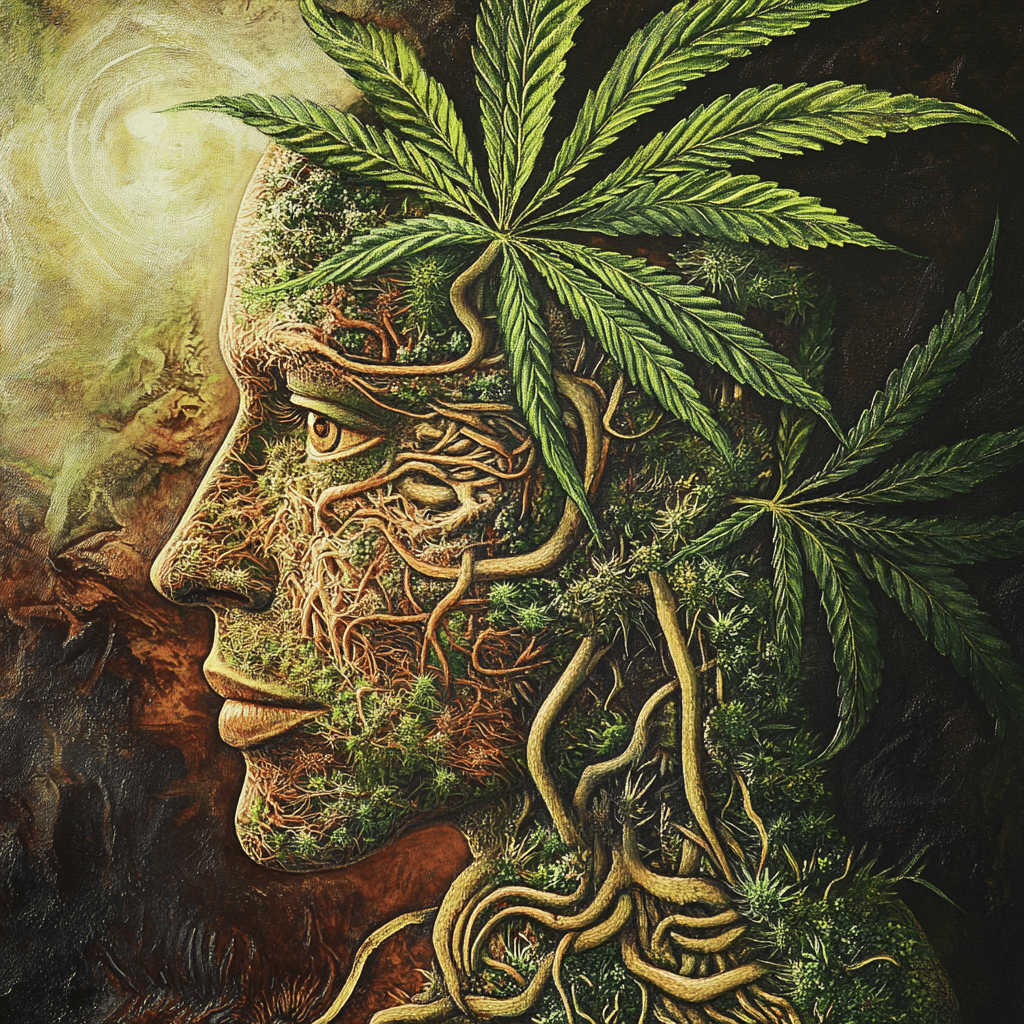Navigating THC withdrawal can feel like an uphill battle. With so many people across the country grappling with cannabis addiction, especially in areas where use is increasingly normalized, understanding the emotional and physical aftermath of stopping use is crucial. As highlighted by the Substance Abuse and Mental Health Services Administration (SAMHSA), more individuals are stepping forward, seeking help for cannabis-related struggles. For parents, this is particularly important, as your child may be facing significant challenges in coping with withdrawal symptoms. Let’s explore the unexpected symptoms of THC withdrawal and provide valuable insights on how to support them through this difficult journey.

Understanding THC Withdrawal and Its Implications
THC withdrawal encompasses a host of physical and psychological symptoms that can unsettle anyone who has relied on cannabis for an extended period. The landscape of cannabis use is rapidly shifting, especially among the “SLC population”—those living in states with legalized marijuana. Parents may feel helpless watching their children grapple with the repercussions of their habits, but awareness can forge pathways toward recovery and understanding.
It’s essential to appreciate the depth of this struggle. Withdrawal isn’t merely about overcoming cravings for bhang or other cannabis products; it’s a profound, multifaceted challenge. The psychological reliance on THC can lead to a mix of emotions that might astonish not just the user but their families as well. Gaining insight into withdrawal can empower parents to offer the support their children most desperately need during these times of turbulence.

Top 7 THC Withdrawal Symptoms You May Not Expect
While familiar symptoms like irritability and sleep disturbances loom large, there are plenty of other surprising aspects of THC withdrawal that may catch you off guard.
1. Intense Cravings for Bhang and Other Cannabis Products
The cravings can be downright overpowering. Individuals might feel a relentless urge to consume bhang or similar cannabis-infused products. According to the Journal of Addiction Research and Therapy, these cravings stem from psychological dependence and can trigger relapse if not effectively managed.
2. Anxiety and Mood Swings
As the THC levels decline in the body, anxiety can sharply increase, ushering in mood swings that can be incredibly jarring. Families may notice a stark contrast between a child’s relaxed nature during use compared to their heightened irritability post-withdrawal. Research confirms that fluctuating THC levels can disrupt the endocannabinoid system, causing these emotional upheavals.
3. Sleep Disruptions: Insomnia and Nightmares
Sleep quality can plummet during withdrawal. Insomnia and vivid nightmares can prevail, taking a toll on daily responsibilities. The National Institute on Drug Abuse (NIDA) underscores that challenges with sleep architecture can exacerbate anxiety and irritability, further complicating recovery.
4. Physical Symptoms: Sweats and Headaches
Users might experience physical symptoms like night sweats and persistent headaches. These discomforts can take individuals by surprise, impacting their ability to engage in routine activities.
5. Digestive Issues: Nausea and Loss of Appetite
Withdrawal can bring on distressing digestive turmoil, including nausea and loss of appetite. Those who used cannabis to stimulate appetite may find these symptoms especially troubling. A trusted resource, Mothers Against addiction, provides insights into what these challenges may mean for families.
6. Social Withdrawal and Isolation
Social circles may shrink significantly, as users go through withdrawal. Those who used to socialize in cannabis-friendly environments may struggle to adapt, cultivating feelings of loneliness and frustration which can perplex parents striving to provide support.
7. Impact on Cognitive Functioning
Cognitive challenges often emerge during withdrawal, impacting memory and focus. It can be startling to realize that tasks that were once simple become daunting. This cognitive impairment may last for weeks, complicating not only recovery but the family’s ability to support their loved one.
Recognizing the Role of Support Networks in Recovery
Regaining balance during THC withdrawal requires a solid support system. Resources like the Center for Substance Abuse Treatment (CSAT) and Behavioral Health Care Center (BHCC) can be invaluable for those battling withdrawal. Peer support groups—both online and in-person—can facilitate connections among individuals navigating similar journeys.
Furthermore, specialized organizations like HRC Army cater to veterans wrestling with addiction and withdrawal. They foster communities where healing is built on understanding and shared experiences, reinforcing that no one is alone in their struggles. Parents should also consider engaging in Family Support Programs (PFA) designed to equip families with knowledge and strategies for supporting their loved ones.
Path Forward: Embracing Change and Seeking Help
The path through THC withdrawal isn’t just about confronting physical symptoms; it’s about reshaping lifestyles. Many users underestimate the impact of this process, but understanding the reality can empower both individuals and their families. Seeking help from professional services and community resources can lead to healthier habits, ultimately guiding users towards reclaiming autonomy over their lives.
In the face of these challenges, embracing change becomes essential. What seems daunting can transform into an opportunity for growth, understanding, and lasting recovery. The resources available today—from professional treatment programs to community-based support—are vast. And with the right tools and a network of support, even the most turbulent experiences can foster resilience and renewed purpose.
If you or someone in your life is facing the challenges of THC withdrawal, exploring avenues of support through organizations like Mothers Against Addiction can be the first step towards healing. The journey may be difficult, but it can also lead to brighter paths ahead.
The Surprising Truth About THC Withdrawal
When you think about THC withdrawal, you might picture common symptoms like anxiety and mood swings. However, many people don’t realize just how individual the experience can be. Surprisingly, THC withdrawal can mimic symptoms seen in various mental health conditions. For those dealing with it, they might find themselves feeling just as overwhelmed as someone facing the challenges on a mentally ill list. It’s fascinating how various substances can alter our mental landscape, and THC is no exception!
What You May Not Know
Did you know that THC withdrawal may also lead to sleep disturbances? This can make you more irritable and on edge, which might explain why some individuals feel they are battling their inner demons. Interestingly, you wouldn’t think something like cannabis could drive intense cravings akin to those seen in powerful addictions. But just like with other substances, diminished access can reawaken challenges; think of it like being part of a relentless reality show like Bucks Wild where every episode brings unexpected twists. Many individuals find themselves in a loop, facing withdrawal symptoms while wrestling with the desire to return to using.
A Closer Look at Withdrawal Symptoms
The range of THC withdrawal symptoms can be downright shocking. Some may experience physical symptoms such as headaches, stomach issues, or changes in appetite, which can feel utterly disconcerting. For example, some people may find themselves oddly more hungry while losing control over their cravings, recalling the experiences of those who have faced extreme challenges like the Fattest person in The world. It’s easy to overlook how deeply withdrawal can affect your physical health alongside mental wellness. And speaking of tackling bills and insurance, understanding coding like Cpt code 99213 can be crucial for those who seek medical help during this tumultuous time.
In conclusion, THC withdrawal symbolizes more than just discomfort; it’s a journey that reveals just how intricately our minds and bodies are connected. Each layer you peel back regarding its effects may reflect broader societal contexts, such as the struggle many face to navigate payment options, specifically when considering Ssi Ssdi payment eligibility Requirements. As you learn and understand this process, remember, it’s okay to seek help—after all, addressing mental health challenges is a vital step towards healing. Just like watching the beautiful animation in 5 Centimeters a Second reminds us how small moments matter, tackling each symptom can lead to greater well-being!





























